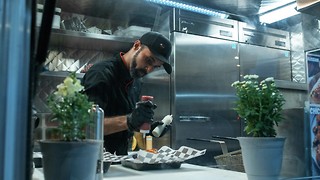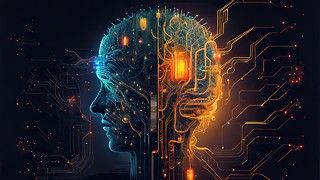Hark the Bard: part II
Is democracy real? Nora Galland looks back to Coriolanus to find out…

In theory, ‘the people’ – demos in Greek – have their say in what happens in a democracy. However, this concept of choice remains ambivalent: the starting point of either freedom or tyranny. When you are given the choice to obey or to die, are you given the possibility to make a choice or has the choice been made for you? So, choice can be paraded as an experience of freedom while a tool of tyrannical manipulation. What kind of choice is offered to the people in a democracy? Is it a free choice or a delusional choice? Is democracy a reality or a tyranny disguised into the fantasy of a democracy?
“What is the city but the people?” (Sicinius, 1.1, Coriolanus)
To find out, hark the Bard!
In Coriolanus, one of Shakespeare’s underrated and interesting political plays, the socio-economic division of Rome between patrician and plebeian is explored.
The patricians are the elite: like the warrior Coriolanus they value bravery and honour. Responsible for the establishment of the republic insofar as they put an end to the monarchy, they rule Rome, sharing power with the tribunes – the representatives of the plebeians. The common people do not fight in wars, one justification for their social inferiority.
However, the plebeians refuse to accept this hierarchy: at the beginning of the play, hunger drives angry crowds to the patricians to demand food. A senator accuses them of creating an unnecessary disorder with this complaint, as he put it:
This is the way to kindle, not to quench. (1.1)
Coriolanus, the war hero, rejects their demand, his disgust for the common people apparent to all. He considers the patricians’ superior status to be justified by their military actions:
Where he should find you lions, finds you hares;
Where foxes, geese: you are no surer, no,
Than is the coal of fire upon the ice,
Or hailstone in the sun. (1.1)
It is worth noticing that Shakespeare does not praise democracy against tyranny. He emphasises the extent to which both political regimes are actually interdependent. The key to control the masses is to get the acceptance of the people by making them believe they can choose – making them believe in a power they do not actually have.
Returning from war, Coriolanus is introduced as a hero and so he is chosen by other patricians to become a consul member. This shift from the military sphere to the political sphere turns out to be a bad experience for Coriolanus. He is uncomfortable with the games of politics: the rhetoric, demagoguery, sophism and flattery to convince the plebeians to vote for him. The tribunes feel threatened by his increasing popularity and manage to sue him for treason. They manipulate the people to get rid of this potential rival that could jeopardize their own position. The tribunes’ selfishness and cunning is revealed in Sicinius’s prediction:
Doubt not
The commoners, for whom we stand, but they
Upon their ancient malice will forget
With the least cause these [Coriolanus's] new honors, which
That he will give them make I as little question
As he is proud to do 't. (2.1)
The plebeians think the tribunes symbolise their power of choice; however this power is but an illusion. The tribunes make the people believe they decided to attack Coriolanus when they made this choice for them beforehand. However, the tribunes represent a hope and this hope is powerful enough to get the acceptance of the people, even if in the end they still suffer from hunger. Coriolanus’s trial appears as a distraction to entertain the people from the real issue – hunger.
In the play, at Sicinius’s question: “What is the city but the people?” A citizen answers: “True, the people are the city.”.
I would rather say: “The people believe they are the city while actually they are not.” As Juvenal wrote in Satire 10: “The minds of men were gradually reduced to the same level, the fire of genius was extinguished, and even the military spirit evaporated. Now that no one buys our votes, the public has long since cast off its cares; the people that once bestowed commands, consulships, legions and all else, now meddles no more and longs eagerly for just two things – Bread and Games (Panem et circenses)!”
What about our society; if our patricians had now the possibility to control us with both food and games, then wouldn’t we too be in a tyranny disguised in a democracy?
 News / Students form new left-wing society in criticism of CULC3 September 2025
News / Students form new left-wing society in criticism of CULC3 September 2025 News / Tompkins Table 2025: Trinity widens gap on Christ’s19 August 2025
News / Tompkins Table 2025: Trinity widens gap on Christ’s19 August 2025 News / Robinson historian calls to recognise first King of England4 September 2025
News / Robinson historian calls to recognise first King of England4 September 2025 Comment / The reality of the Tompkins Table rankings3 September 2025
Comment / The reality of the Tompkins Table rankings3 September 2025 News / Cambridge’s tallest building restored to former glory1 September 2025
News / Cambridge’s tallest building restored to former glory1 September 2025









